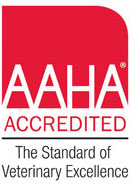Educational Articles
-
A successful road trip with a dog begins long before the day of travel. If you have a small dog, teach him that his carrier is a great, everyday place to hang out. For larger dogs, there are several well-designed doggy seat belts for restraint in the back seat. Take your dog's medical documents with you and be sure your dog wears identification during travel. Consult your veterinarian to create the best travel plan for your dog if he does not travel well.
-
Roundworms are the most common gastrointestinal worm found in dogs and can also be transmitted to people. They are of most concern to puppies when present in large numbers, causing stunted growth, a pot-bellied appearance, and recurrent diarrhea. Diagnostic testing, treatment, and preventive measures are explained in this handout.
-
Routine fecal examinations are used to detect intestinal parasites in your dog. This handout discusses how the tests are done and why regular testing is critical to the health of your pet.
-
Dogs can be great running partners. They are always available, they have energy to burn, and they aren't in a bad mood from a stressful day at work. Plus, approximately 50% of American dogs are overweight and need to work off a few calories.
-
Do you have medications stored in the bathroom cabinet, kitchen drawer, and pantry shelf? Are random bottles haphazardly tossed into the “pharmacy”? Medications are meant to help us and our pets, but they can do more harm than good if stored or administered incorrectly. You can protect your family and pets by safely handling and disposing of medications.
-
Several changes occur in the aging cat; they often progress slowly, so it is essential to have your senior cat examined by a veterinarian twice yearly. This is important so that if your cat develops a disease, it can be recognized and treated as early as possible, thereby maintaining her quality of life for as long as possible.
-
Senior dogs are in the stage of life where aging begins to affect every organ system. Some organs wear out faster or are more susceptible to cumulative damage than others, so certain observations are critical. While it is true that old age is not a disease, older dogs do merit special attention, including routine health exams twice yearly. This is important so that if your dog develops a disease, it can be recognized and treated as early as possible, thereby maintaining his quality of life for as long as possible.
-
Is your dog lovable, smart, and obedient? Is she/he also really good-looking? If you want others to know just how great your dog is, perhaps you should consider showing them off!
-
The most common skin problem in mini-pigs is dry skin that results from a dietary deficiency of fatty acids. In addition to dry skin, mini-pigs commonly suffer from sarcoptic mange, parakeratosis, yeast dermatitis, and sunburn. Hooves of mini-pigs grow continuously throughout life and need to be trimmed periodically. The canine teeth (tusks) of male pigs grow throughout life, while those of female pigs stop growing at about two years of age. Starting after the pig is about a year of age, your veterinarian will trim tusks during an examination.
-
Skunks spray volatile compounds from their anal sacs if they feel threatened by a potential predator such as a dog. If sprayed in the face your dog may need veterinary care, as corneal damage can occur if sprayed in the eyes, and vomiting, diarrhea, or anemia can result if sprayed in the mouth.

